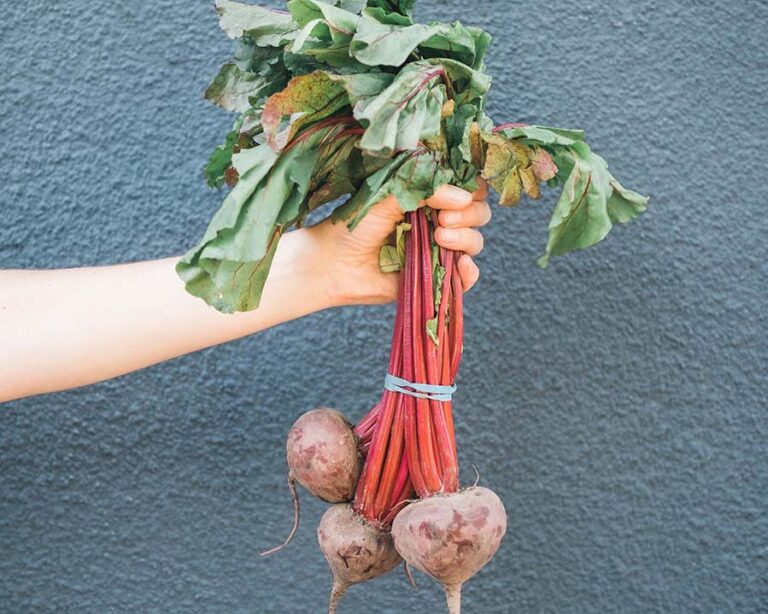One of my kids is debatably short gut. Like a relationship before the DTR talk, the diagnosis is complicated.
Once upon a time, my daughter went to surgery and came back having traded two feet of her small intestine for a (MIC-key) button sticking out of her belly through which I was to feed her at all times. I am quite serious. They gave me a bag of milk with a tube attached to my kid’s belly-button (read: g tube), and said: “don’t let this run dry—ever.”
Maybe I should’ve expected this, after all, it was the third surgery since the spontaneous perforations shortly after her extremely premature birth. It’s not like anything had gone right up to that point, but a lot of things have gone right since we came home.
I don’t have to keep that milk bag full anymore—and the belly button is gone. (The plastic one, not her actual belly button. That would be savage.) A lot of this progress can be traced back to a single lifestyle change.
I could try with all the grit of Jesse trying to Free Willy, but I can’t bring those 2 feet of small intestine back. I can—and did—however, give her the Best gut health she can have given her current, albeit evolving, clinical status. If you’re thinking this doesn’t apply to you because you have the great fortune of a completely healthy child, consider this: if a kid born 4 months early and missing part of her guts can grow up to become a unicorn trainer, imagine what’s possible for those of us who didn’t draw the short gut end of the stick.
Before I reveal how I manage Margot’s short gut symptoms I need you to listen up: I am not a doctor. I don’t even play one on tv. You need to talk to a real gastroenterologist about your kids’ tummy troubles. If you don’t like yours, check out mine.
Ok, and now, the moment you’ve all been waiting for…
I keep Margot’s gut in check by only feeding her plants I prepare at home.
This is where some people might be like “yeah but don’t you give her baby puffs, squeeze packs, or store-bought hummus?”
And I’m like, “have you ever read the ingredients on a container of store-bought hummus?” You should be more worried about Big Suga’ than the anti-rona-jabbers are about sterility. Unless you are an anti-rona-jabber, in which case, you’ve made a wrong turn on the internet.
So no, I don’t give my kids store-bought hummus or baby puffs. I’m not saying I never will, and I’m not saying everything you buy at the store is inedible, but when you’re trying to manage something as finicky as a short gut, you need all the control you can get.
I need to know exactly what goes into my kid’s body so I can know exactly what works for her and exactly what gives her mucousy diarrhea at 3 am.
Are you wondering why plants and only plants?
Start here and stay tuned for more.
“Ok, but how do they get enough calories and protein?”
Peanuts. Avocado. Cashews. Avocado. Macadamia nuts. Avocado. Walnuts. Avocado. Repeat.
“Ok, but are you sure that’s enough?”
Their weight gain and blood work say yes. Data doesn’t lie, unless you believe in fake science, in which case I don’t know why you’re still here.
“Ok but, isn’t that a lot of work?”
Oh my god, I thought you would never ask.
Yes—a thousand times yes. Feeding a kid is a lot of work. It’s an activity with set up, activity time, and clean up, and you have to do it three times a day just to sustain life. Sometimes I wonder why they couldn’t keep drinking milk until they had better aim with a fork, but then I remember that would mean I would still be attached to a breast pump for 5 hours a day, so I’m good with the cooking and the cleanup.
In all seriousness, it’s crazier than working at Best Buy on Black Friday to cook three times a day for twins. However, as with everything related to parenting, consider the long game.
Even if you have a healthy, full-term kid who believes that chicken nuggets are life, the gut-brain connection is real. What if trading those chicken nuggets for beet pasta and roasted Brussels sprouts is the difference between your kid having her dream job as a unicorn trainer and having a boring ol’ job like POTUS. I’m not saying it is, but I’m not saying it’s not.
“Ok, but my kid won’t eat vegetables.”
Ok, but, yes. he. will. This requires its own blog post. So that’s my cue to end it here and leave you pining for more.

